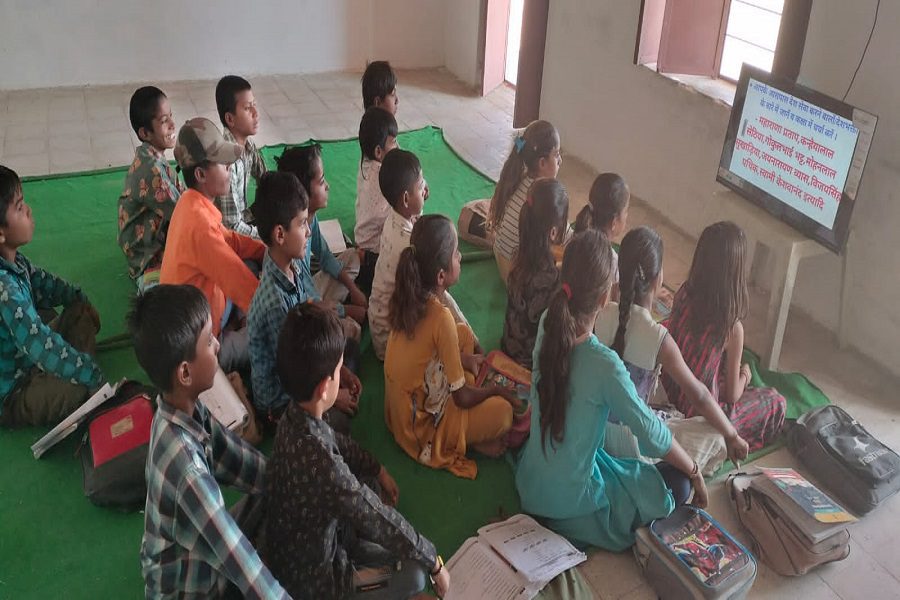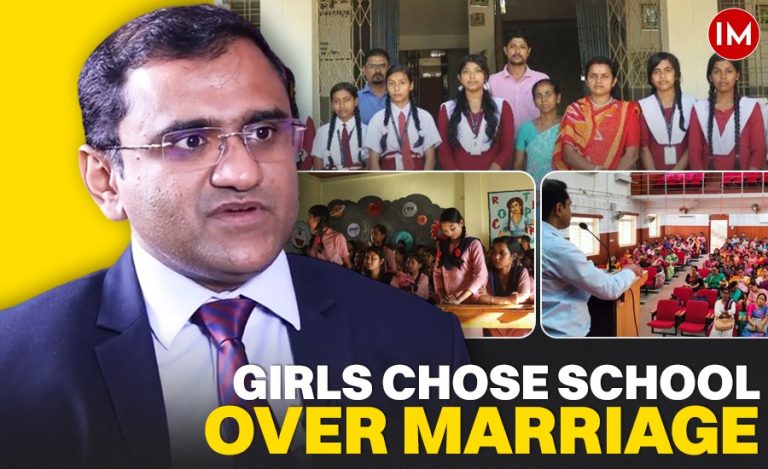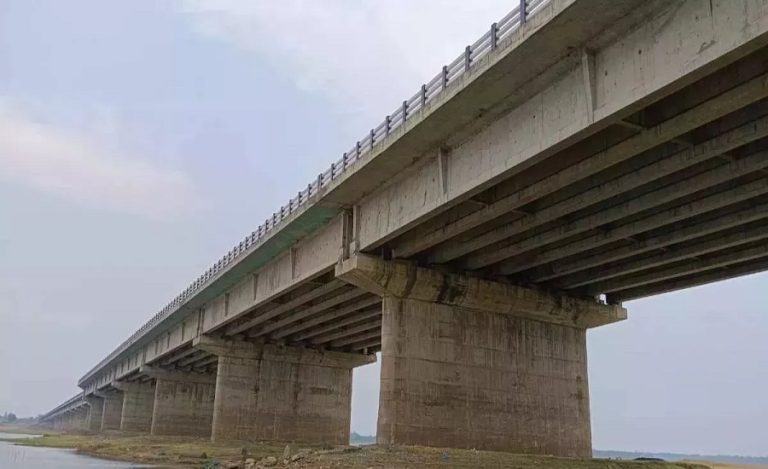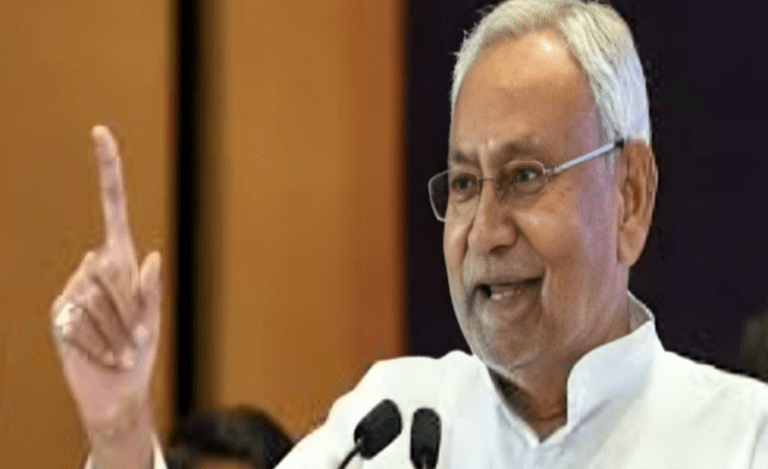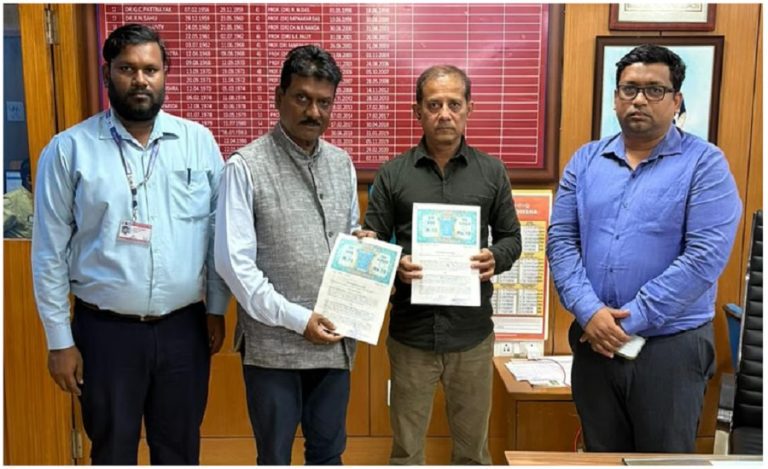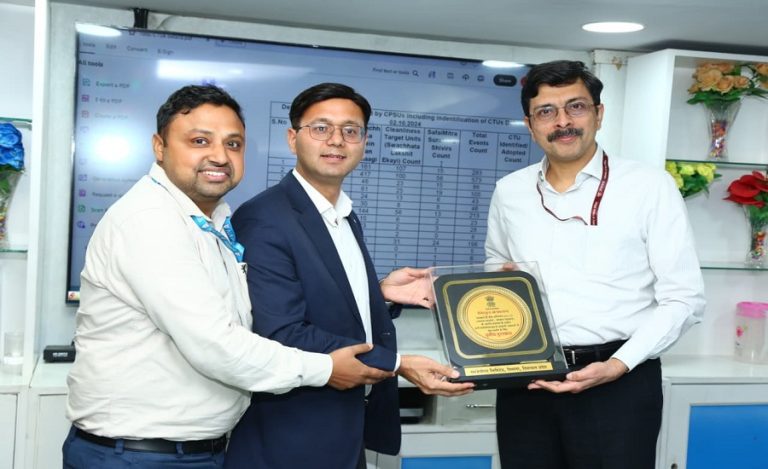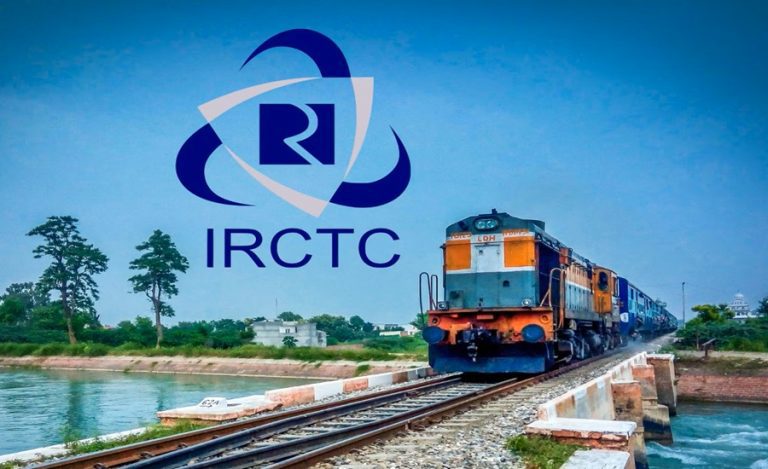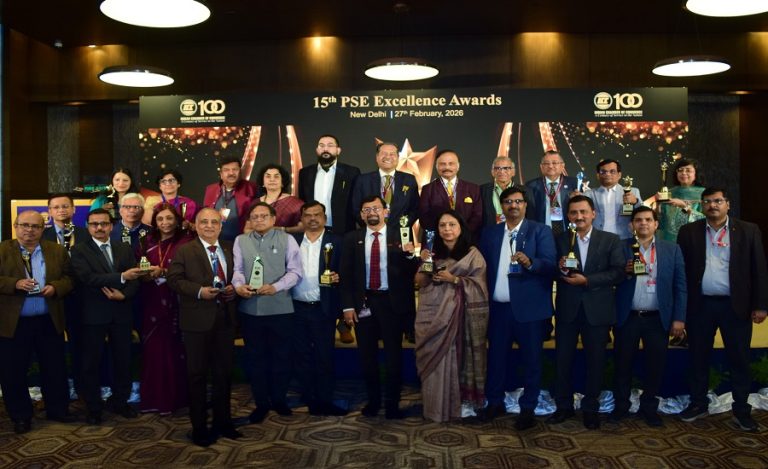Schools in rural India often suffer from absence of teachers. But, not any more. At least in Bikaner. Started in October last year, a Digital Initiative for Quality Education (DIQI) programme aims at learning of children in absence of teachers. For this, Bikaner district administration initiated DIQI by providing smart classes in more than 600 schools of district. It has produced awesome results and helped in continuation of education for students in classrooms despite the shortage of teachers. Till now more than 40 thousands hours study has been conducted in only 28 days in November and December.
The DIQI initiative covers not only government schools, but madarsas and schools for disable as well. Indian Masterminds interacted with 2011-batch IAS officer and the District Collector of Bikaner, Bhagwati Prasad Kalal, to get more details about this initiative.
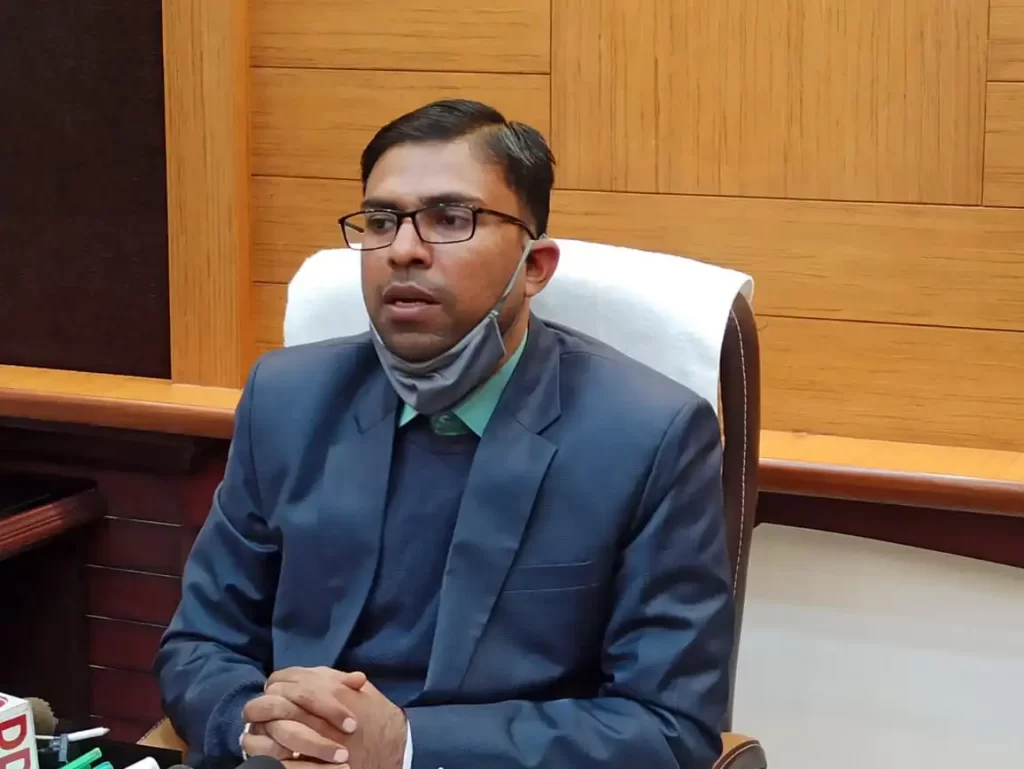
Speaking with us, Mr. Kalal said, “If a childs tops learning for one year, then next year it becomes very difficult for him to learn anything. It is very difficult to fill this gap which comes in learning. That’s why our aim is to ensure continuance of learning due to lack of teachers.”
E-LEARNING
Along with schools in Bikaner, hostels have also been linked to it, so that the children do not face any problem in revising their studies. All the lectures from class 1 to class 12 are online. It has been recorded by government teachers. These lectures will run in a classroom and will be called e-classes. There is online portal for class 1-12, where online tutorials are available for every chapter. The TVs can be connected through wi-fi. There is a provision for hard disk as well in which tutorials are already downloaded. Two TB storage hard disks have been provided to 350 schools.
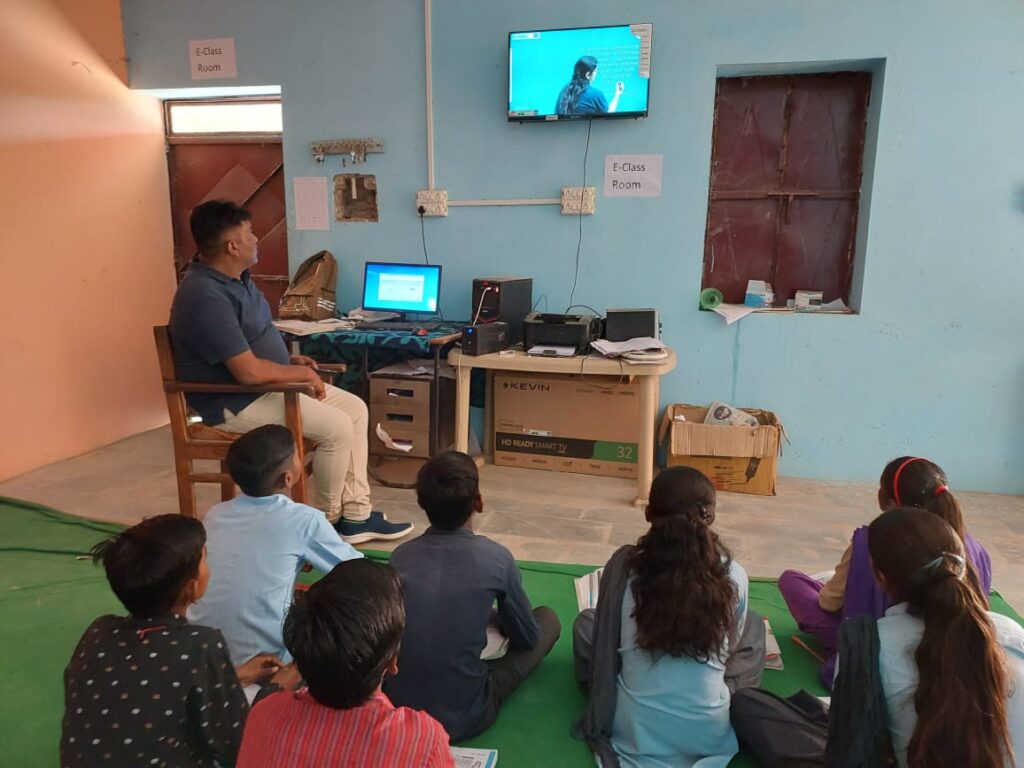
BHAMASHAH’S OPEN PURSE-STRINGS
“We have given smart android TVs to more than 600 schools. 2 Deaf and Dumb Schools and 28 madarsas having been already equipped with smart TVs too,” Mr. Kalal added.
Of the 600 smart government schools 334 were upper primary schools, 153 were senior secondary and 99 were primary. The students in 27 madrasas (religious seminaries) affiliated to Rajasthan Madrasa Board also benefited from the initiative.43 bhamashahs (donators) have already contributed Rs. 1.25 crore to this end.
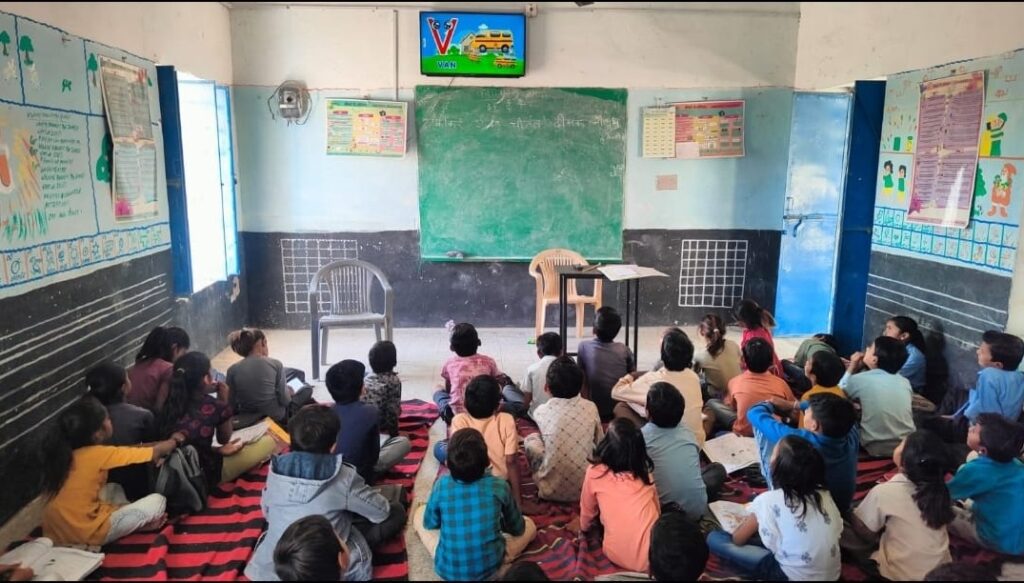
IMPLEMENTATION
Firstly, an assessment was made by the District Collector of the number of schools in the district with only one teacher or less, due to which the studies of the children was being affected. That’s how 600 schools were selected. Alternative methods of study were brainstormed in these institutions and in the second phase, the District Collector discussed with the Bhamashahs and donors of the district regarding regular maintenance of teaching work through Smart TV in these educational institutions. Digital content was made available to each school.

